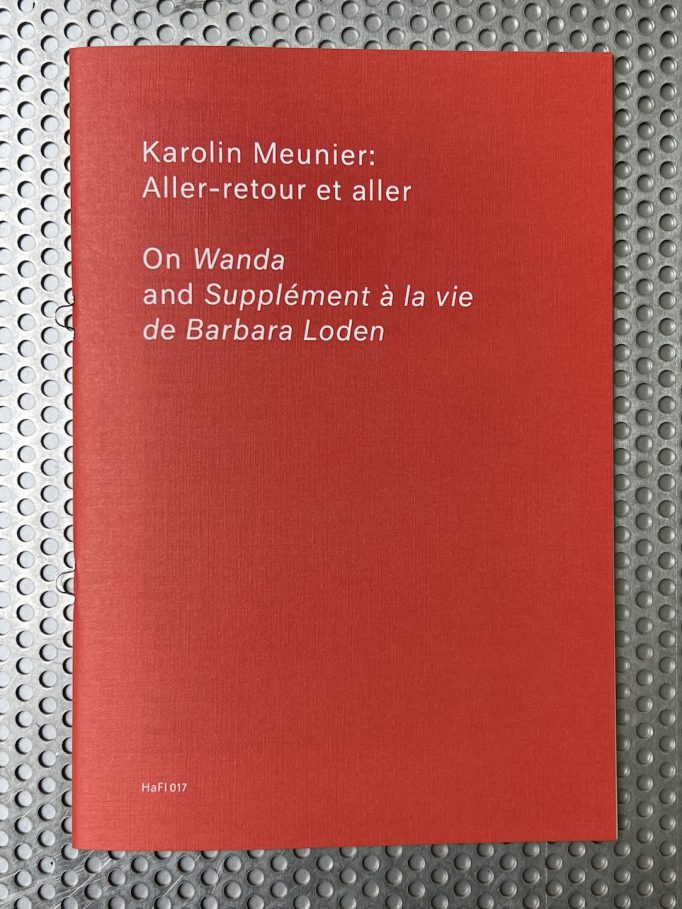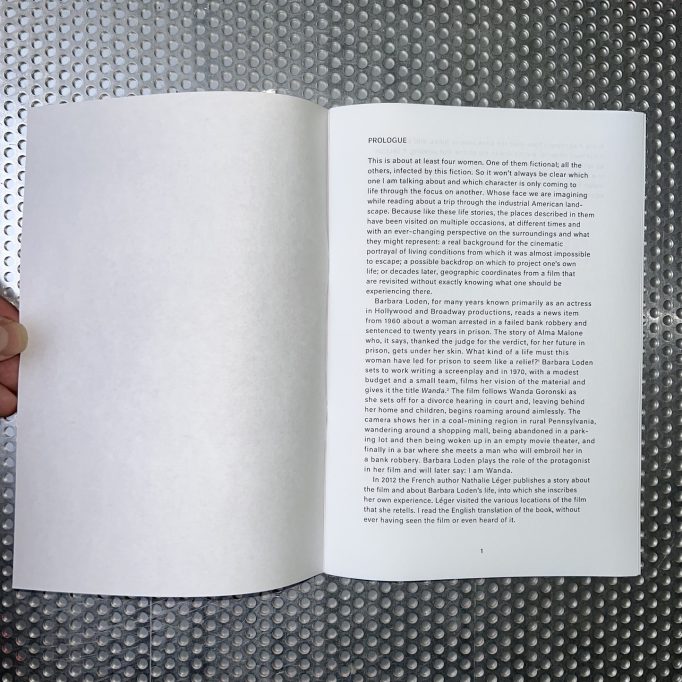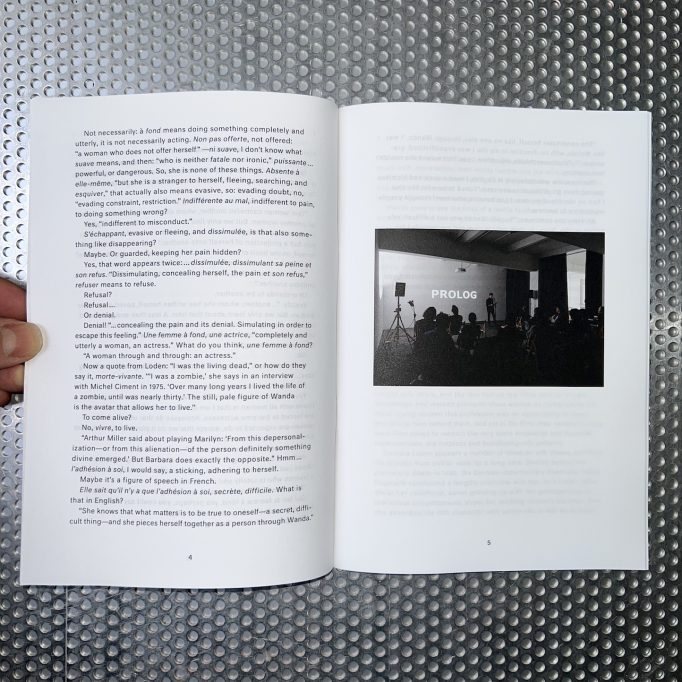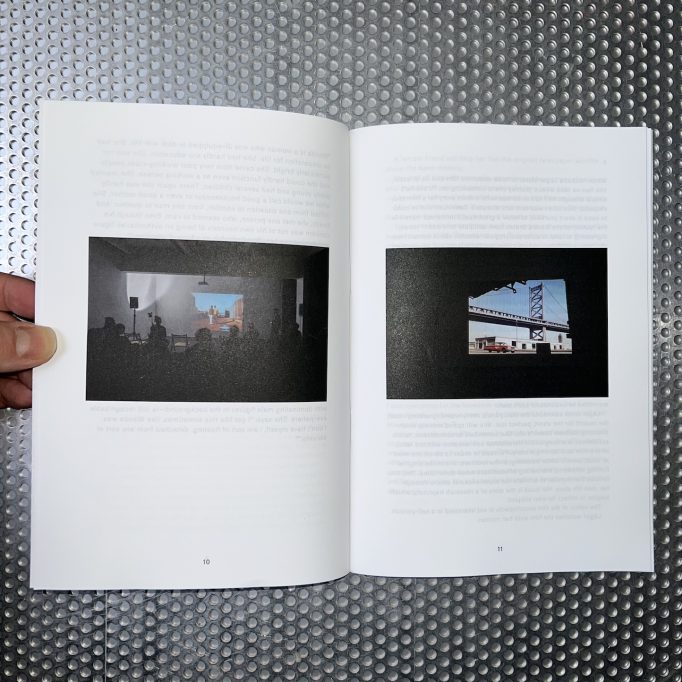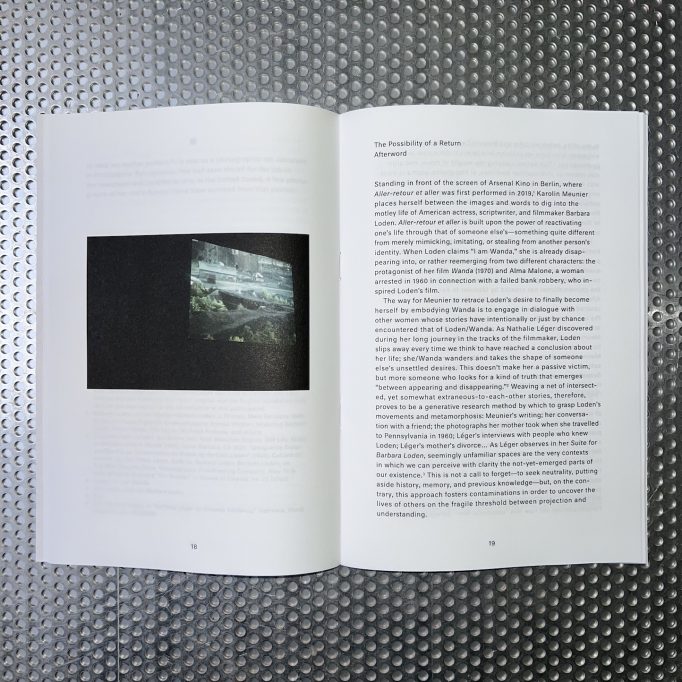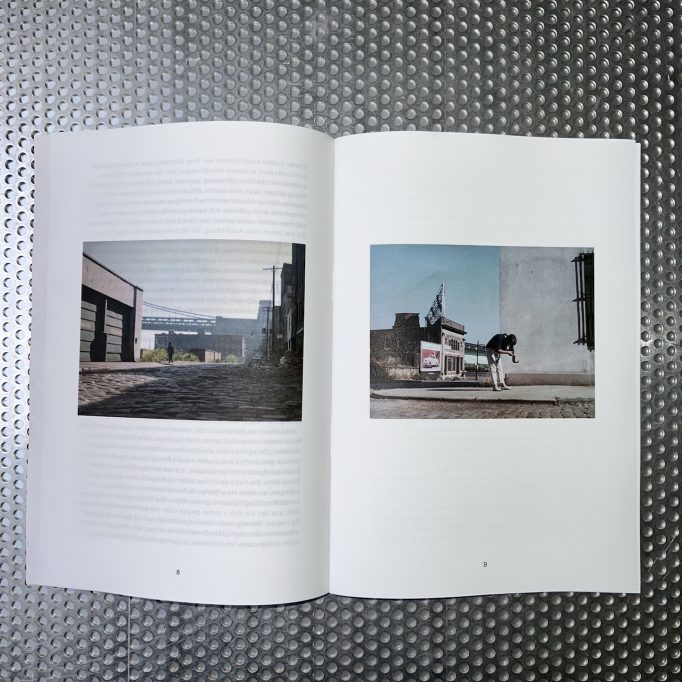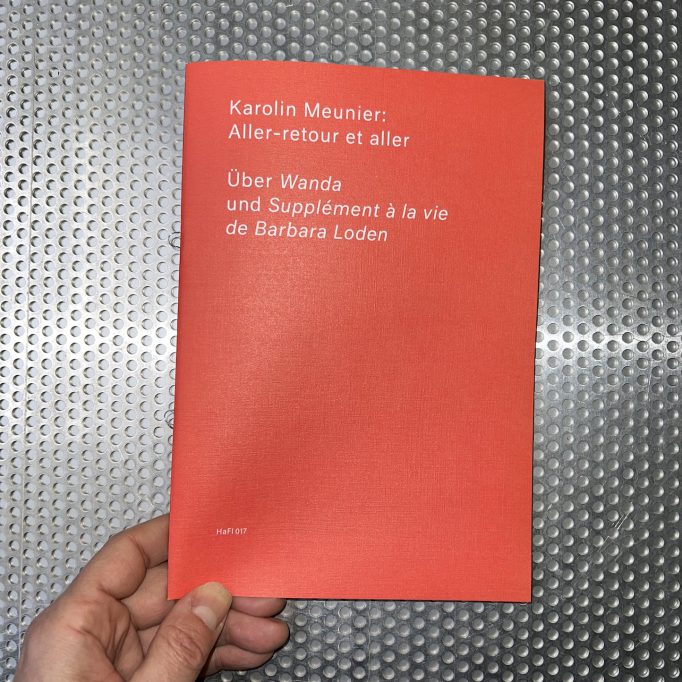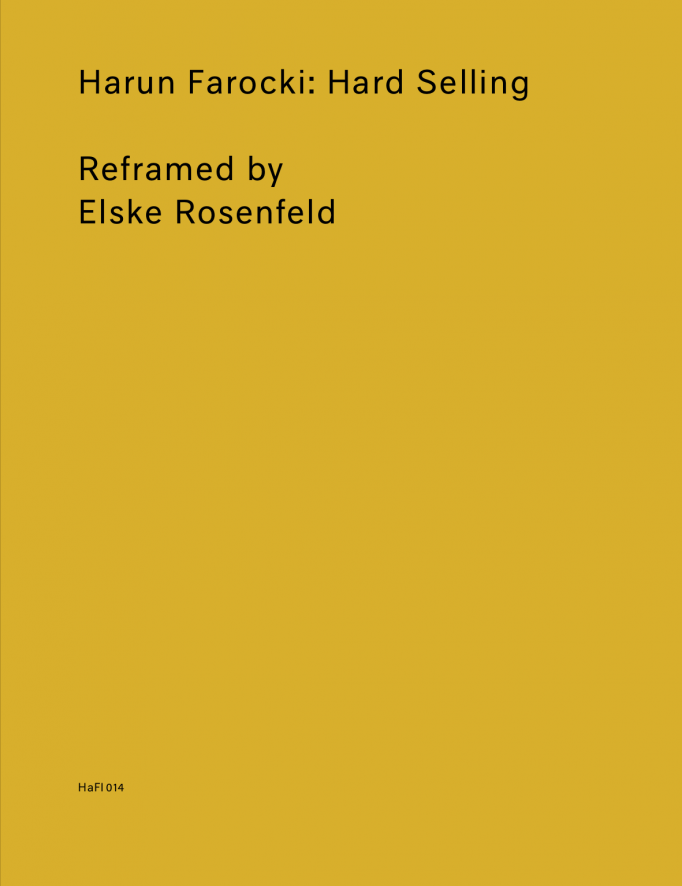HaFI 018 – Skip Norman: On Africa. Skip Norman. Harun Farocki Institut; Motto Books
Posted in Film, history, Motto Books, writing on November 17th, 2023Tags: Afrcian History, Africa, Colonization, critique, decolonization, documentary, film, HaFi 018 – Skip Norman: On Africa, Harun Farocki Institut, Motto Books, moving images, Skip Norman, writings
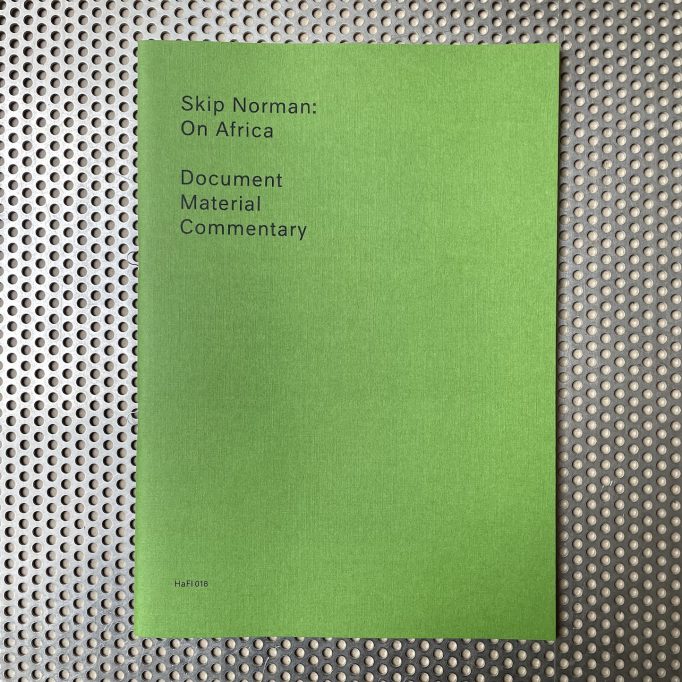
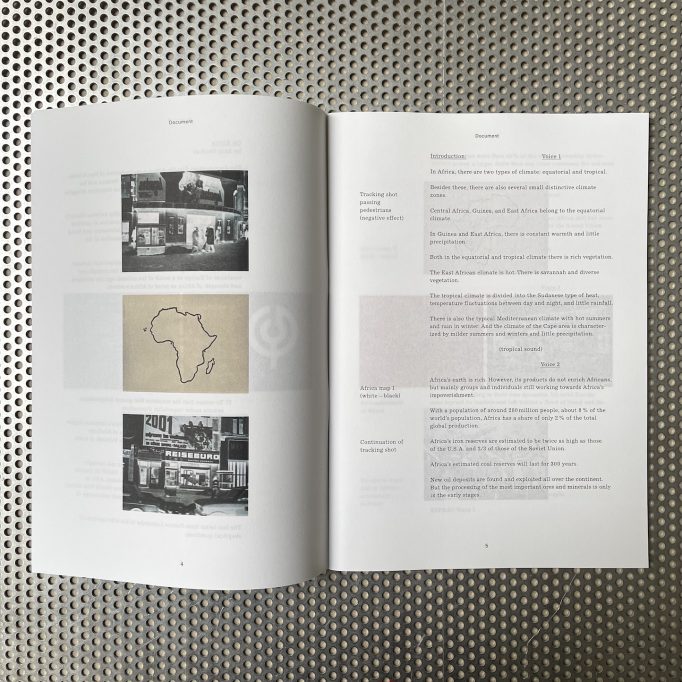
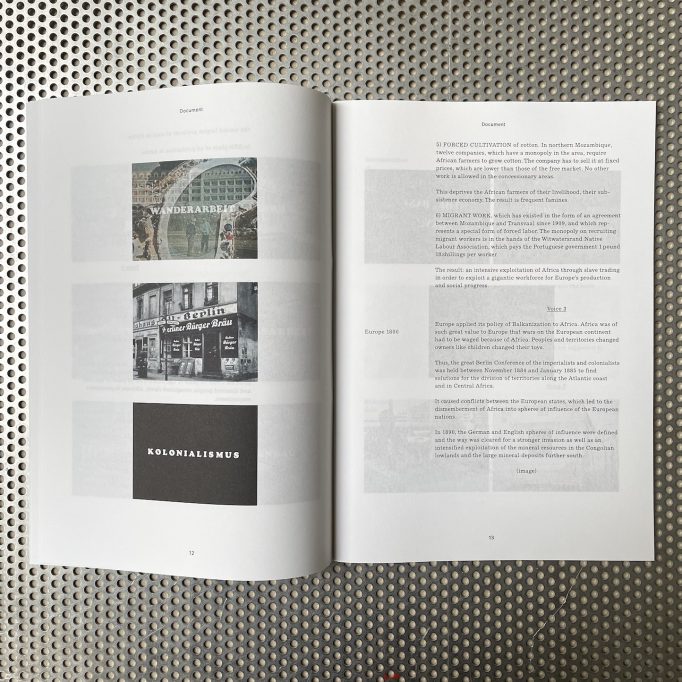

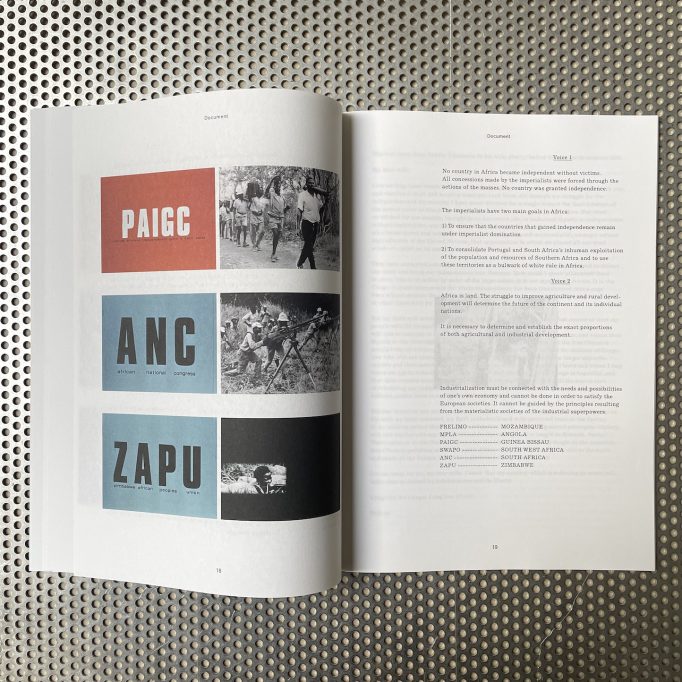
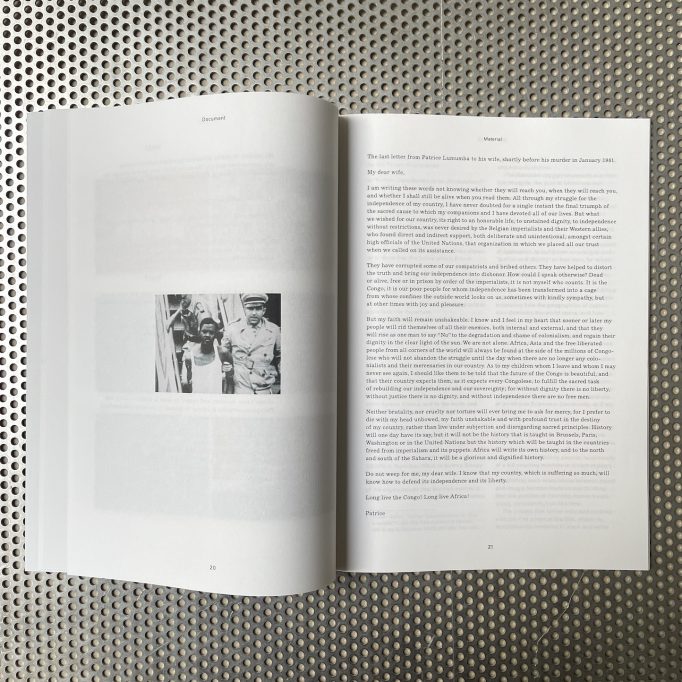
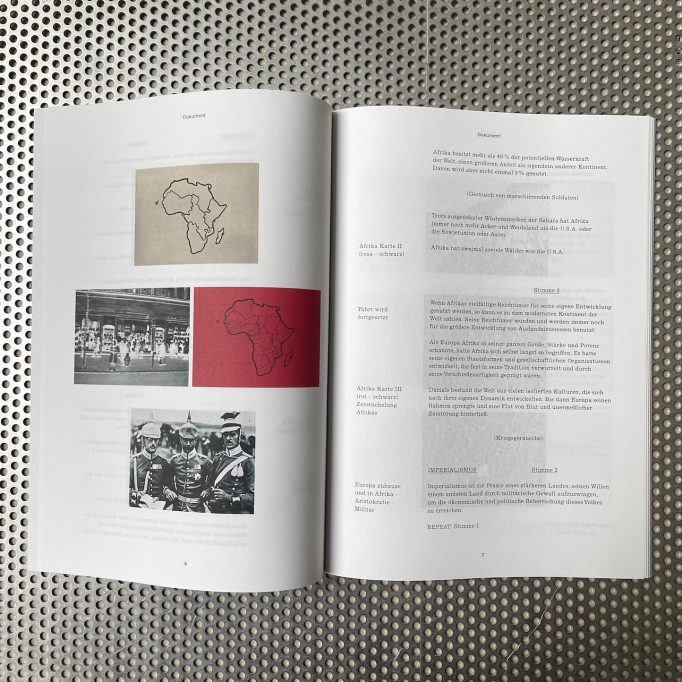
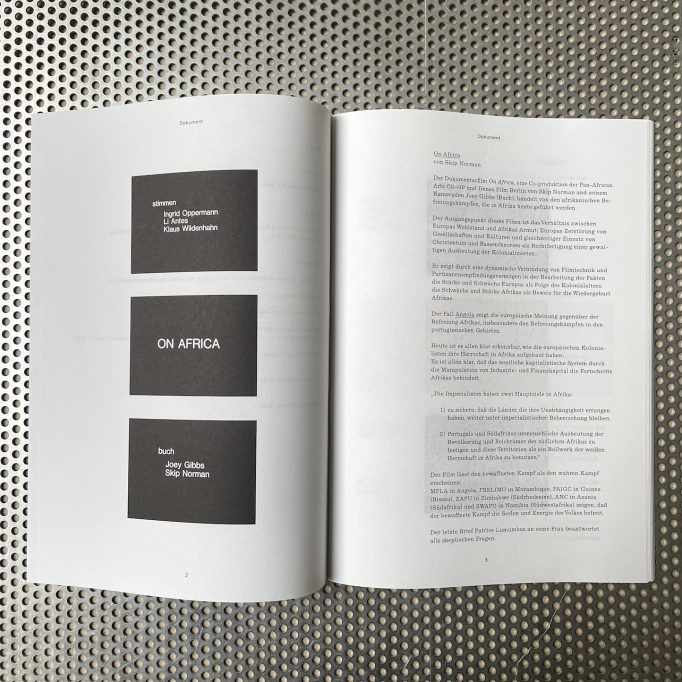
HaFI 018 reprints a document containing the script of Skip Norman’s film On Africa (1970). Norman, born in Baltimore in 1933, had left the U.S. in the early 1960s to study German, theater, and medicine in Göttingen. In 1966 he moved to Berlin to join the newly founded German Film and Television Academy (DFFB). By 1969, he had made the films Riffi (1966), Blues People (1968), Cultural Nationalism (1969) and the graduation film Strange Fruit (1969). He shot On Africa together with Joey Gibbs after graduating from the school. The filmmaker about his film: “The starting point is the relationship between Europe’s prosperity and Africa’s poverty; Europe’s destruction of societies and cultures, and the simultaneous use of Christianity and racial theories as justification for a massive exploitation of the colonized.” On Africa was first shown at the Festival in Mannheim in 1970 and then broadcast on television by WDR in 1972.
The script is accompanied by images from the film, and followed by five short commentaries by Sónia Vaz Borges, Madeleine Bernstorff, Marie-Hélène Gutberlet, Tom Holert, and Volker Pantenburg.
—
Das Heft enthält das Skript für Skip Normans Film On Africa (1970). Norman, 1933 in Baltimore geboren, hatte die USA zu Beginn der 1960er Jahre verlassen, um in Göttingen Deutsch, Theaterwissenschaft und Medizin zu studieren. 1966 zog er nach Berlin, um an die neugegründete Deutsche Film- und Fernsehakademie Berlin (DFFB) zu wechseln. Bis 1969 entstanden die Filme Riffi (1966), Blues People (1968), Cultural Nationalism (1969) und der Abschlussfilm Strange Fruit (1969).
On Africa entstand gemeinsam mit Joey Gibbs nach Normans DFFB-Abschluss. In Normans Worten: „Der Ausgangspunkt dieses Films ist das Verhältnis zwischen Europas Wohlstand und Afrikas Armut; Europas Zerstörung von Gesellschaften und Kulturen, und gleichzeitiger Einsatz von Christentum und Rassentheorien als Rechtfertigung einer gewaltigen Ausbeutung der Kolonialisierten.“ On Africa wurde am 7. Oktober 1970 bei der XIX. Internationalen Filmwoche Mannheim in der „Informationsschau“ aufgeführt; 1972 lief der Film im WDR.
Das Skript wird begleitet von zahlreichen Bildern aus dem Film und kontextualisiert durch fünf Kurzessays von Sónia Vaz Borges, Madeleine Bernstorff, Marie-Hélène Gutberlet, Tom Holert und Volker Pantenburg.
Order here

